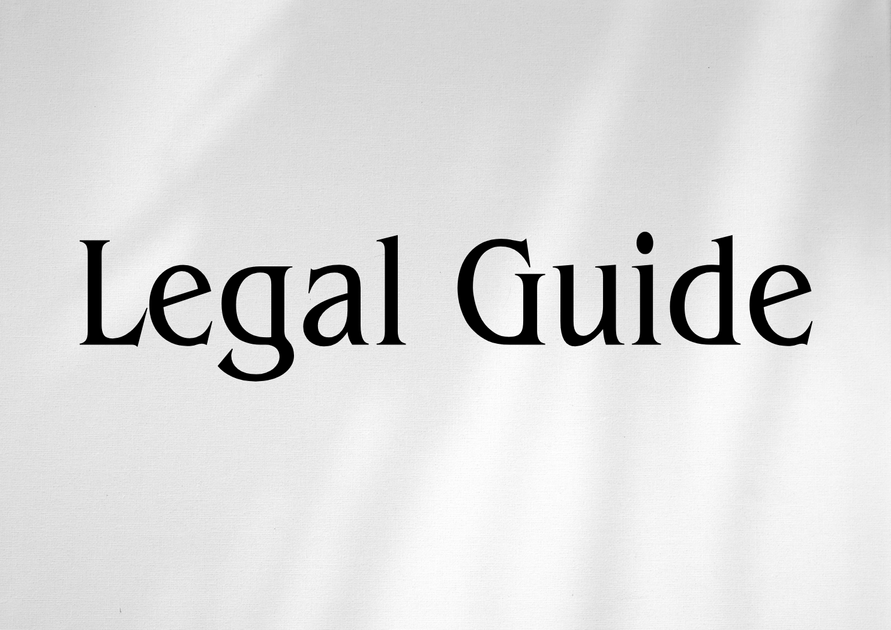Introduction
Commercial contracts are fundamental to business operations across the GCC, and the legal frameworks surrounding contract law in Qatar are of increasing interest to UAE-based businesses, multinational corporations, and regional investors. As Qatar continues to modernize its commercial ecosystem—especially following the FIFA World Cup and with regional economic integration initiatives—understanding the country’s legal obligations and protections for commercial contracts is crucial for any executive, HR manager, or legal practitioner operating in the Gulf. Recent legislative updates in the region and evolving case law have sharpened regulatory expectations around contract drafting, execution, and enforcement. This expert analysis aims to guide UAE and international clients in effectively navigating Qatar’s contract law landscape, ensuring compliance, mitigating risks, and capitalizing on growth opportunities within Qatar and the broader GCC.
Table of Contents
- Overview of Qatar Commercial Contract Law
- Essential Elements of Commercial Contracts in Qatar
- Recent Legal Updates and Comparisons with UAE Law
- Practical Insights: Drafting and Enforcement
- Case Studies and Hypothetical Examples
- Compliance and Risk Management Strategies
- Conclusion and Best Practices for Future Readiness
Overview of Qatar Commercial Contract Law
The Legal Framework: Qatari Civil and Commercial Codes
Qatar’s commercial contracting landscape is primarily governed by Law No. 22 of 2004 (Qatar Civil Code), Law No. 27 of 2006 (Commercial Companies Law), and the newer Law No. 7 of 2021 (regulating commercial registration and licensing). These laws are supplemented by sector-specific regulations and international conventions to which Qatar is a party. The Qatari legal system is a hybrid of civil law (influenced by Egyptian and French models) and Sharia principles.
Key entities interpreting and enforcing commercial contracts include the Qatari courts, with the Qatar International Court and Dispute Resolution Centre (QICDRC) overseeing many cross-border commercial disputes, especially those arising within the Qatar Financial Centre (QFC).
Significance for UAE Businesses and Investors
Given the close economic ties between the UAE and Qatar, many UAE-based firms engage in transactions under Qatari jurisdiction. Understanding the distinctions and overlaps helps businesses avoid jurisdictional pitfalls, enforce contractual rights, and structure more robust agreements. It is especially critical given recent post-blockade normalization and regulatory harmonization movements across the GCC.
Essential Elements of Commercial Contracts in Qatar
Defining a Valid and Binding Contract
The Qatar Civil Code (Art. 87–224) sets out the foundation of contractual validity. For a commercial contract to be valid under Qatari law, the following elements are essential:
- Offer and Acceptance: Both parties must agree on all significant terms. The offer must be clear, definite, and communicated; acceptance must mirror the offer without modifications.
- Legal Capacity: Parties must have the legal authority to enter into contractual relations (e.g., age, mental capacity, proper company authorization).
- Legitimate Object: The contract must not contravene public order, morality, or Qatari law.
- Lawful Cause/Consideration: There must be an objective and consideration agreed upon by both parties.
- Formality: While Qatari law generally does not require contracts to be in writing, written contracts are strongly advised—especially in commercial transactions, as they facilitate proof in case of dispute.
Mandatory Clauses and Customary Provisions
Prudent commercial contract practice in Qatar includes detailed provisions on:
- Parties’ details and authorizations
- Scope of work/goods or services
- Duration and termination procedures
- Payment terms and currency
- Governing law and dispute resolution mechanism (e.g., local courts, QICDRC, or arbitration)
- Force majeure and hardship clauses
- Penalties/liquidated damages and limitation of liability
- Confidentiality and intellectual property rights
Contracts with Public Entities and SOEs
When contracting with government bodies or state-owned enterprises (SOEs), additional statutory requirements apply—procurement regulations, Arabic language mandates, and approval from relevant ministries are often required. Failure to observe these can render a contract void or unenforceable against the state.
Recent Legal Updates and Comparisons with UAE Law
Qatar’s Legislative Developments
Qatar has undertaken several reforms to streamline commercial contract enforcement:
- The new Commercial Companies Law (Law No. 11 of 2015 and its 2021 amendments) introduces more flexible structuring for joint ventures and partnerships.
- Qatar’s Law No. 6 of 2022 introduces transparency in business obligations, while Cabinet Resolution No. 17 of 2023 defines new compliance standards for foreign investments.
- The Qatar International Court (QICDRC) has updated its arbitration rules, aligning them closer with global best practices (see QICDRC Procedural Rules 2022).
Comparison Table: Key Provisions – Qatar vs UAE
| Provision | Qatar Law | UAE Law (as of 2025) |
|---|---|---|
| Requirement for Written Contracts | Not always required, but recommended for evidence. Public projects often mandate Arabic text. | Similar; however, certain business sectors must use standardized written contracts under Federal Decree-Law No. 33 of 2021 (UAE Labour Law) and other regulations. |
| Enforcement Mechanism | QICDRC and local courts; arbitration increasingly common. | UAE courts (including DIFC and ADGM), commercial arbitration centers. |
| Governing Law | Party autonomy respected except in contracts involving public policy or governmental entities. | Party autonomy recognized, restrictions for certain contracts involving UAE law on public order or employment. |
| Force Majeure | Recognized, but must be expressly included and clearly defined. | Recognized, increasingly sophisticated clauses post-COVID revisions. |
| Language of Contract | Arabic required for official documents, especially with government. | Arabic required in courts; English allowed in free zones (DIFC, ADGM). Translation often needed. |
Visuals Suggestion: Compliance checklist infographic summarizing the above requirements for rapid reference by legal teams.
Practical Insights: Drafting and Enforcement
Best Practices in Contract Drafting
Legal consultancy practice emphasizes anticipating legal risks from the outset. In Qatar, this involves:
- Ensuring that all equity and commercial agreements (including joint ventures, distributorships, franchises) comply with local authorization and licensing requirements.
- Clearly defining deliverables, key performance indicators, and milestones. Vague language increases the risk of enforceability issues.
- Incorporating robust dispute resolution clauses, tailored to the risk profile, sector, and transaction value. Arbitration (domestic or international) is increasingly favored for cross-border deals.
- Expressly addressing issues such as change of control, force majeure, governing law, and jurisdiction, in case the contract’s performance is affected by events like supply chain disruptions or regulatory shifts.
Enforcement in Qatari Courts and QICDRC
While Qatari courts generally honor party autonomy and contractual terms, there are procedural nuances to consider:
- Documentation and Arabic Translation: Non-Arabic contracts may be accepted but must be translated in court proceedings. Official translations carry legal weight and must be certified.
- Evidence: Under Qatar’s evidentiary rules, written documents, correspondence, and electronic records can all be used, but best practice is to anticipate evidential challenges at the drafting stage.
- Time Limits: Limitation periods can vary depending on contract type; commercial contracts are typically subject to a 15-year limitation period (Civil Code Art. 418), though special cases may differ.
- Enforcement of Foreign Judgments and Awards: Qatar is a party to the New York Convention, simplifying enforcement of arbitral awards from other Convention signatories, provided public policy isn’t breached.
Case Studies and Hypothetical Examples
Case Study 1: Cross-Border Distribution Agreement
Scenario: A UAE-based manufacturer enters a distribution agreement with a Qatari partner, with disputes to be resolved by arbitration in Qatar. The agreement lacks a well-drafted force majeure clause.
Outcome: When the distributor faced pandemic-related delays, the absence of specificity in the force majeure provision left the parties dependent on the default rules under Qatari law, leading to protracted litigation. With clearer drafting—including thresholds, notification procedures, and excusable events—the dispute could have been resolved more efficiently via arbitration.
Case Study 2: Termination and Liquidated Damages in Construction Contracts
Scenario: An international contractor delivers a project late and disputes the liquidated damages imposed by a Qatari project owner.
Analysis: Qatari courts require that contractual penalties reflect actual losses and not be excessively punitive. The court may reduce the agreed penalty if the loss suffered is less than the penalty amount or if the contractor proves that the project owner did not suffer substantial harm (Civil Code Art. 266).
Hypothetical Example: Technology Licensing to a SOE
Scenario: A UAE tech company licenses IP to a Qatari SOE. The contract accidentally omits mandatory Arabic translation and ministry registration requirements.
Risk: The SOE challenges the contract’s validity, jeopardizing multi-million-dirham revenue streams. The case exposes the importance of localizing and registering sensitive commercial agreements.
Visuals Suggestion: Process flow diagram of contract negotiation, localization, and enforcement for cross-border contracts involving Qatar.
Compliance and Risk Management Strategies
Risks of Non-Compliance
- Unenforceable Agreements: Contracts that do not meet essential formalities or lack required regulatory approvals may be declared void, especially with SOEs or public procurement.
- Financial Penalties: Non-compliance with licensing, business activity, or foreign investment rules can result in substantial fines or loss of contractual rights.
- Reputational Damage: Litigation or regulatory penalties can impact future tenders or business with Qatari government entities.
Developing a Robust Compliance Framework
| Compliance Area | Key Steps |
|---|---|
| Contract Vetting | Engage legal counsel with Qatari expertise; review for localization, government approvals, and sector-specific requirements. |
| Regulatory Registration | Register contracts with the Ministry of Commerce and Industry; ensure any licensing, IP, or technology agreements are notified as needed. |
| Dispute Readiness | Include clear dispute resolution, jurisdiction, and governing law provisions; prepare and archive all correspondence and documentation. |
| Periodic Review | Update contract templates and procedures following new Qatari or broader GCC legal developments, including UAE 2025 updates. |
Practical Tips for UAE-Based Clients
- Always seek local legal review before executing contracts with Qatari entities to ensure compliance with evolving legislation.
- Use bilingual (Arabic/English) contracts for cross-border deals and ensure official translations are certified.
- Monitor regulatory updates from the Qatar Ministry of Justice and Ministry of Commerce and Industry, as well as UAE legal gazettes for regional harmonization trends.
Conclusion and Best Practices for Future Readiness
Qatar’s legal landscape for commercial contracts continues to evolve in sync with international and regional best practices, offering both opportunities and challenges to UAE and international businesses. Key takeaways include:
- Understand and integrate Qatari legal requirements—including language, licensing, and sectoral approvals—into every commercial contract.
- Stay ahead of fast-changing legal norms, especially following regional harmonization and UAE 2025 updates.
- Engage specialist legal counsel to mitigate risk, draft robust agreements, and manage enforcement complexities.
- Institutionalize compliance processes, routine legal reviews, and proactive contract management to avoid disputes and regulatory pitfalls.
Looking forward, ongoing reforms in both Qatar and the UAE will almost certainly continue to shape contractual expectations, enforcement practices, and opportunities for cross-border commerce in the GCC. Proactive, informed legal and compliance strategies will be essential for organizations seeking to thrive in this dynamic environment.
For experienced guidance on cross-border contracts, regulatory compliance, or dispute resolution between UAE and Qatari entities, seek specialized legal consultancy services that combine regional experience with deep sector expertise.




